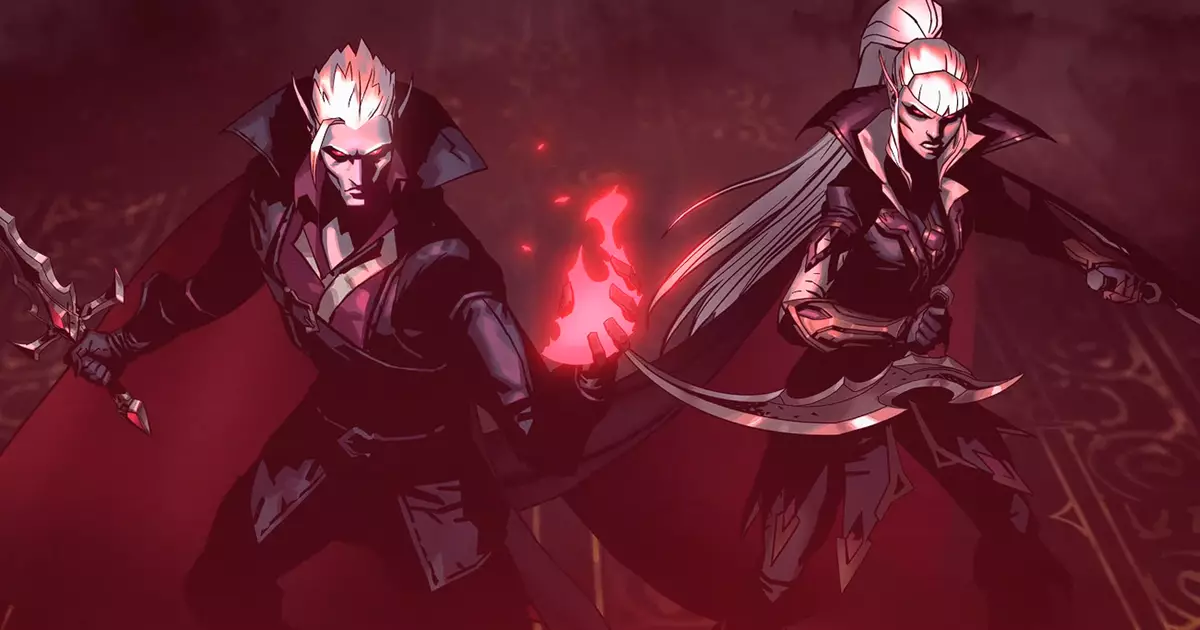V Rising presents an enticing invitation into the realm of gothic lore, allowing players to step into the shoes of a fledgling vampire with aspirations of power and dominance. The game’s premise oscillates between classic vampire narratives and contemporary gaming mechanics, offering an environment filled with opportunities for exploration and combat. However, it also introduces a survival aspect that feels at odds with the inherent elegance of vampire mythology.
At its core, V Rising marries the archetypal strengths of a vampire with gameplay mechanics that borrow heavily from the survival genre. On one hand, players can enjoy the more traditional powers associated with vampiric lore, such as shapeshifting into various forms, most notably into a spider. This element brings an eerie vibe that could resonate with fans of Gothic storytelling. However, players must contend with the unforgiving mechanics typical of survival games, such as resource gathering and crafting. The necessity to chop down trees or farm for supplies underscores a dichotomy that might leave players questioning their identity as a creature of the night in a world filled with mundane chores.
While V Rising cleverly integrates survival actions, it raises the question: does the game compromise the essence of being a vampire to incorporate these gameplay elements? For many, the experience of being a vampire should evoke power and mystique, not the toil of crafting lowly items like leather pants. This disjunction may limit immersion, leaving players yearning for more captivating and thematic gameplay experiences that align with the vampire narrative.
One of the standout features in V Rising is its treatment of sunlight, a classic vampire vulnerability. This mechanic adds an intriguing layer of strategy, compelling players to navigate the world cautiously. Unlike many vampire representations that gloss over this critical aspect, V Rising actively forces players to think about their schedules and movement in relation to day and night cycles, thereby amplifying the game’s tension.
Furthermore, the blood mechanics introduce another facet to the gameplay. Instead of mindless feeding, players must discern the merits of different blood types, providing a layered approach to resource management. This encourages a form of tactical engagement, inviting players to develop not just raw power but a nuanced strategy around their feeding habits. Such elements breathe life into the gothic narrative, enriching the general gameplay experience, even if they coexist uneasily with the crafting concerns.
The decision by Stunlock to hold a free weekend event for V Rising suggests an acute awareness of potential reservations among players. By allowing gamers to test the waters without financial commitment, developers hope to convert skepticism into engagement. This strategy highlights a trend within the industry where developers proactively seek to create positive player experiences, understanding that first impressions are crucial.
Nevertheless, the survival mechanics, as noted in critiques, can undermine the game’s central thematic premise. Players expect to evoke the power and charm of a vampire lord without the burdensome tasks typically associated with survival games. While the crafting system may appeal to a subset of players, it risks alienating those who long for the narrative richness tied to being an aristocratic vampire.
V Rising undeniably flaunts a captivating concept — the collision of vampiric lore and survival gameplay. It introduces elements that can engage players purposefully, challenging them to navigate the world while adhering to any vampire traditions. However, the survival elements feel disjointed from the sleek, dark elegance one would expect from a title steeped in Gothic themes.
As the gaming landscape continues to evolve, balancing thematic fidelity and gameplay mechanics remains a critical challenge. V Rising can serve as an exploration of that tension, posing the question: can a game authentically represent it without sacrificing what makes it enjoyable? The answer is still unfolding, but one thing is clear: to be a dominant vampire doesn’t necessarily mean you should also be a carpenter.

